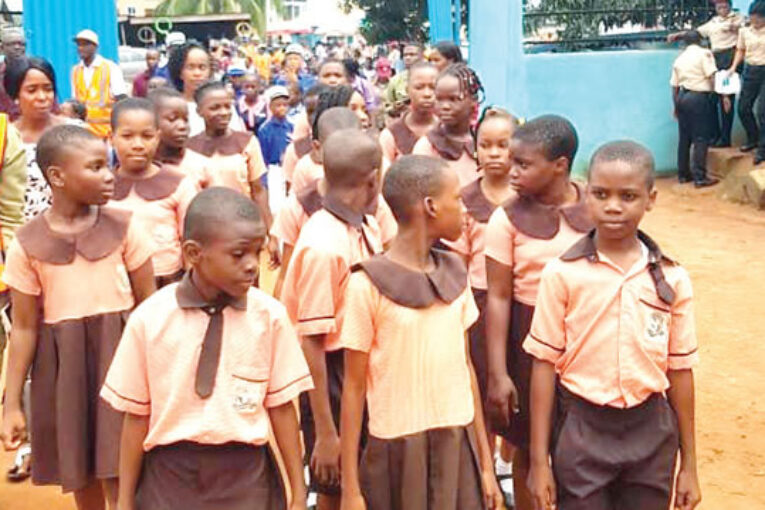
The Parents Teachers Association and the Nigeria Union of Teachers have expressed fear of a possible increase in the rate of school dropout in the country due to the rising cost of bus fares across the country.
They also warned that teachers might miss classes on days when they are unable to afford the increased transportation costs.
Lagos State primary and secondary schools were among the first to resume for the 2024/2025 session.
Schools in Lagos State had gone on a long vacation, concluding the 2023/2024 session on July 19, 2024, while others wrapped up on July 26, 2024.
At the time of the July break, a litre of fuel was priced at N750, but it now sells for N900 to N1,200.
This has caused a sharp increase in transportation costs across the country.
Both private and commercial transport operators have expressed frustration over the rising fares.
Private schools across the country have also increased the cost of school bus services.
Speaking with The PUNCH, the National Chairman of the PTA, Alhaji Haruna Danjuma, expressed concern that the rising transportation costs would lead to more student dropouts, emphasising the hardship faced by parents.
“If parents become hesitant to send their children to school, we will face even greater challenges. Parents are struggling, and we risk having a surge in the number of out-of-school children, which will be a major issue for all of us. Children who live far from their schools will find it difficult to attend due to transportation costs, leading to more children walking long distances, or, worse, many of them dropping out altogether,” Danjuma said.
He called on the government at all levels to take urgent action to support parents, ensuring that their children can continue attending school.
“We appeal to the government to address the issue of poverty in our country. They should consider providing free transportation in certain areas for schoolchildren. Designated vehicles could pick up children from specific points to help ease the burden on parents,” the PTA national leader said.
Similarly, the Secretary-General of the NUT, Dr. Mike Ike-Ene, expressed concern that teachers would struggle to attend school regularly due to their meagre salaries.
“The government has made several promises without fulfilling any. If a parent has four children attending different schools, they could end up spending N5,000 per day on transportation, which is outrageous. Teachers are required to be physically present at school every day, while other workers can work from home some days, yet many primary school teachers have not even received the minimum wage. What kind of education system are we running?
“We are tired of politicians who only care about themselves because their children are not here. They are playing politics with education in Nigeria. Why must teachers go to work every day without any form of encouragement? Any country that neglects its education sector will suffer now and in the future.”
Meanwhile, parents across Lagos State have expressed frustration over the rising transport fares.
A parent in Ikeja, Mrs. Nneka Aderounmu, shared her concerns, stating that her two children previously paid N30,000 each for the school bus between Mangoro and Cement Bus Stop, Ikeja, for a term, but the school bus bill for this term has increased to N60,000 each.
“Sincerely, I don’t know how I’ll manage if I have to pay N120,000 just for the school bus. Meanwhile, school fees, feeding, and books are still there. This government is terrible and wicked to Nigerians. It’s negative leadership. We plead with the government to reduce the cost of fuel because if fuel prices come down, everything else will stabilise,” she said.
The Chairman of the School-based Management Committee, Kings College, Jani Ibrahim, advised that “A robust public transportation system that supports people with limited means is essential. For example, Lagos State already has a mass transit system, and that’s what will help.
“Many Nigerians, when traveling to places like London, rely on public transportation. Unless we have a similarly efficient public transportation system here, the government must step in to regulate it and make sure it’s inclusive, with no discrimination in access.”




